Grand Examination Of Monastic Forms
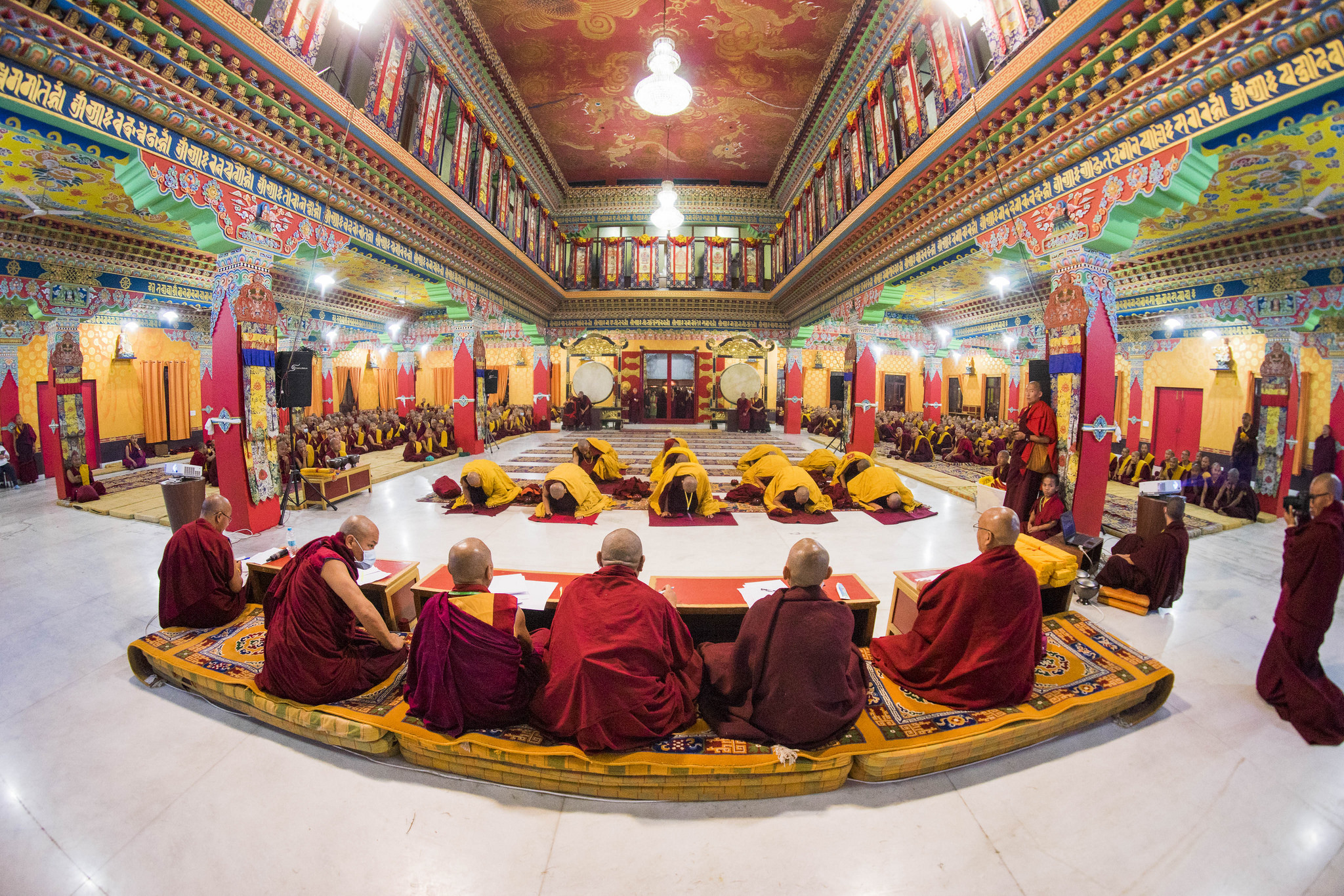
The extensive test of protocol for monks and nuns was established in 2004 when the Gyalwang Karmapa issued a code of conduct for monastics based on both the Vinaya precepts set out during the life of the Buddha himself and ritual aspects unique to the Tibetan context.
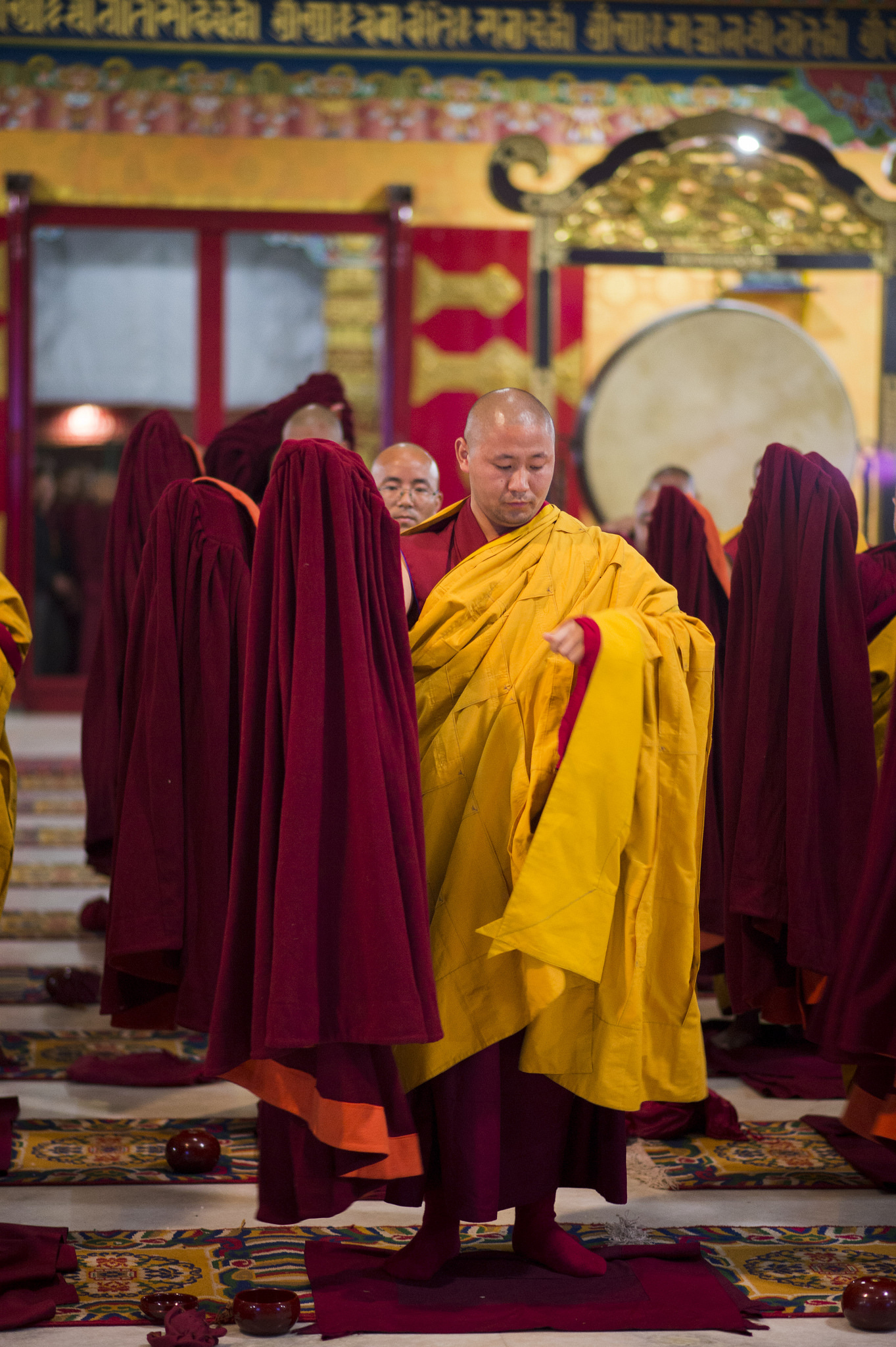
One by one the monasteries and nunneries presented themselves in front of a panel of seven judges.
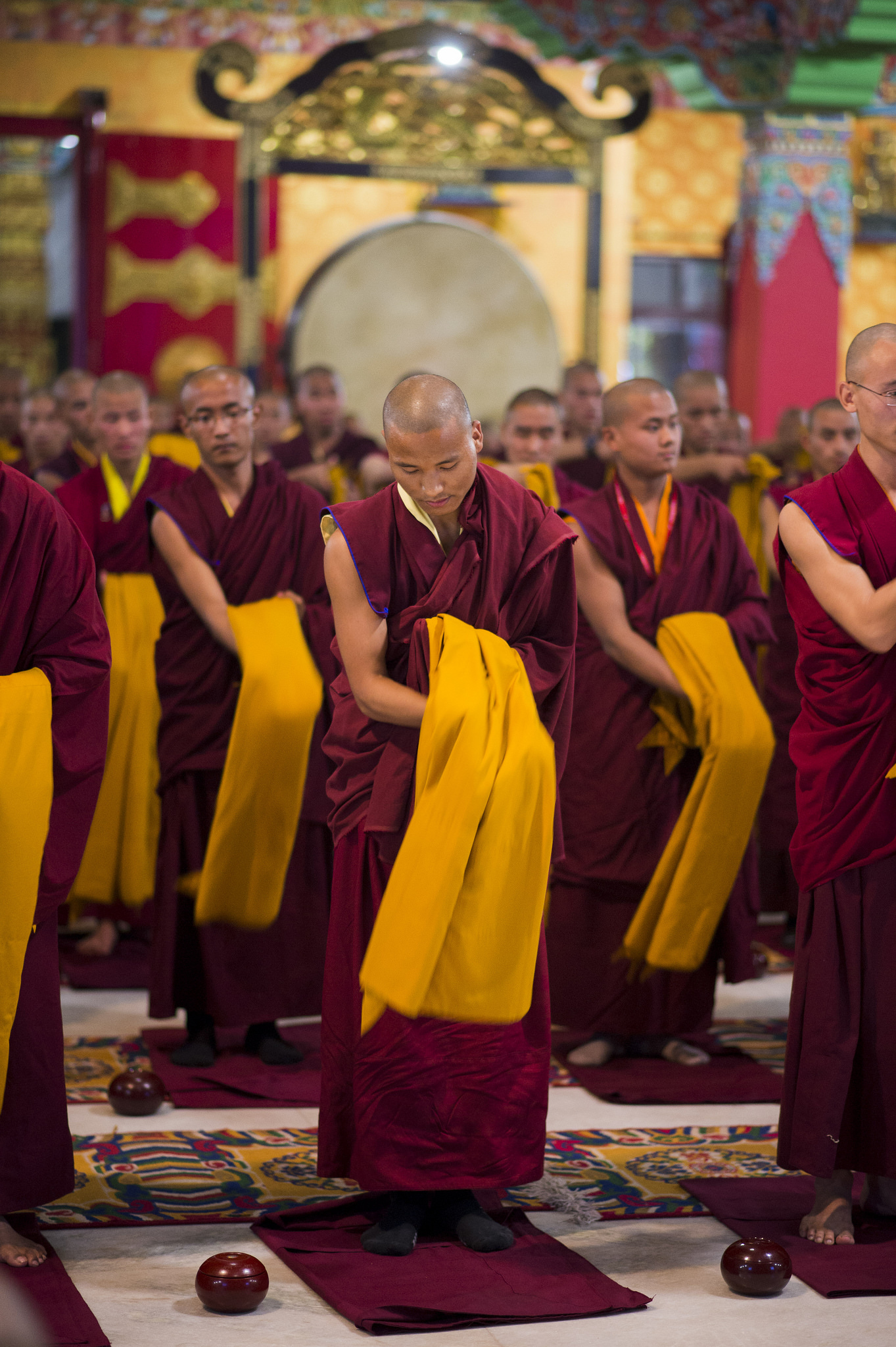
Getsuls (novice monks) had to show that that they knew how to wear all the robes properly.
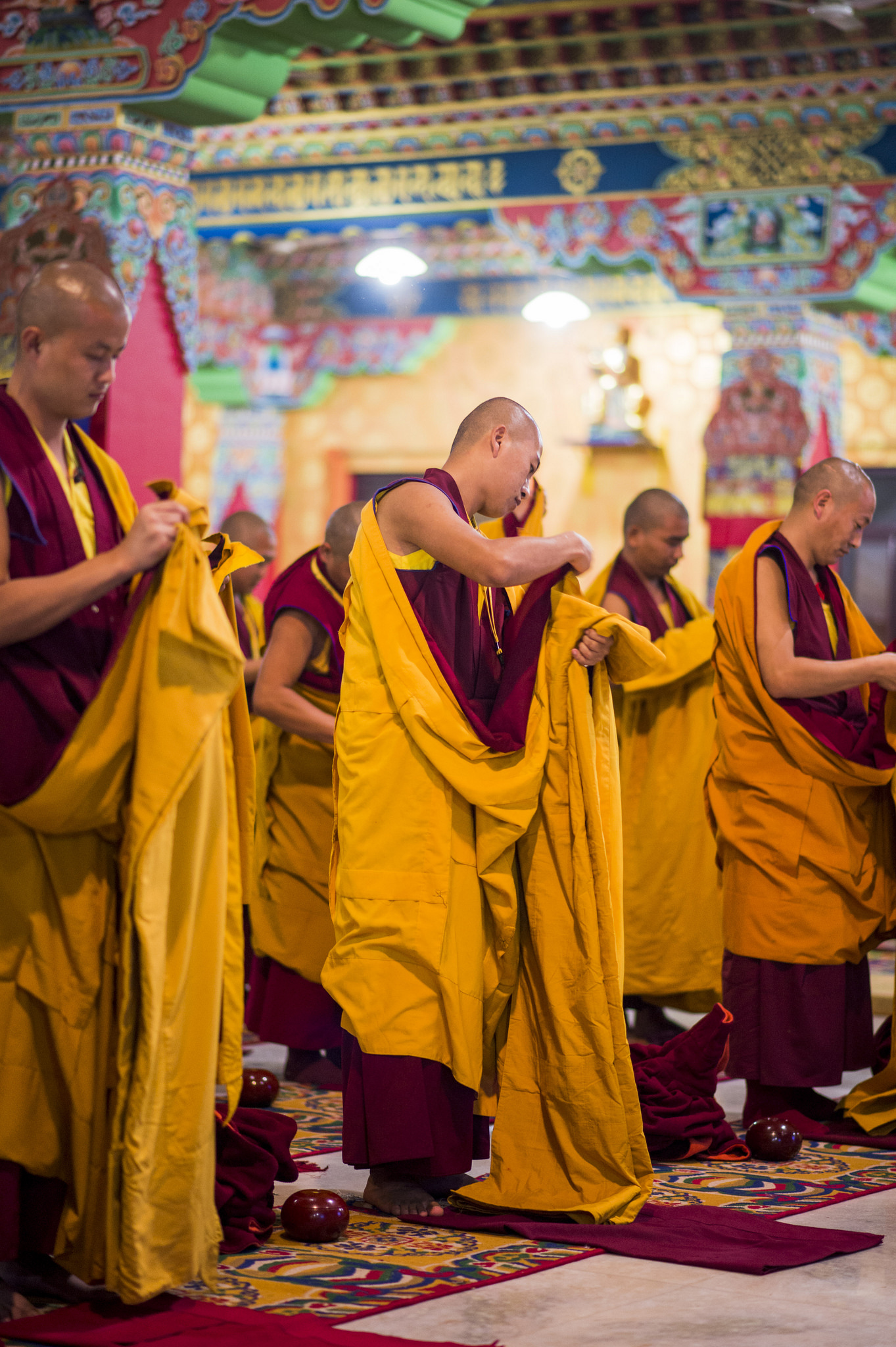
Putting on the red zen and the chögu (yellow prayer shawl) properly were some of their tasks.
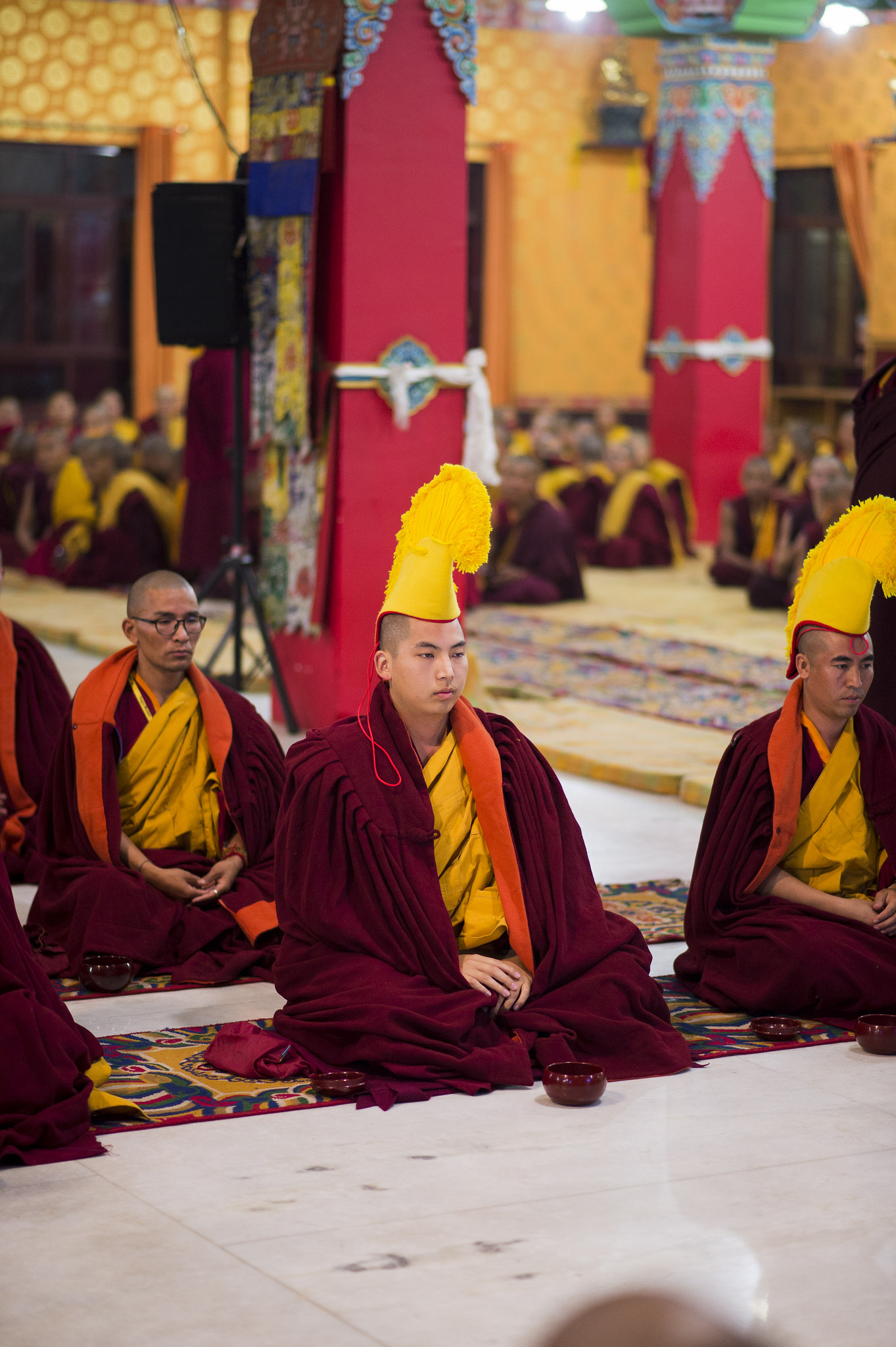
Gelongs (fully ordained monks) had many extra tasks, such as putting on the tsesha [the large yellow hat] was one of them.
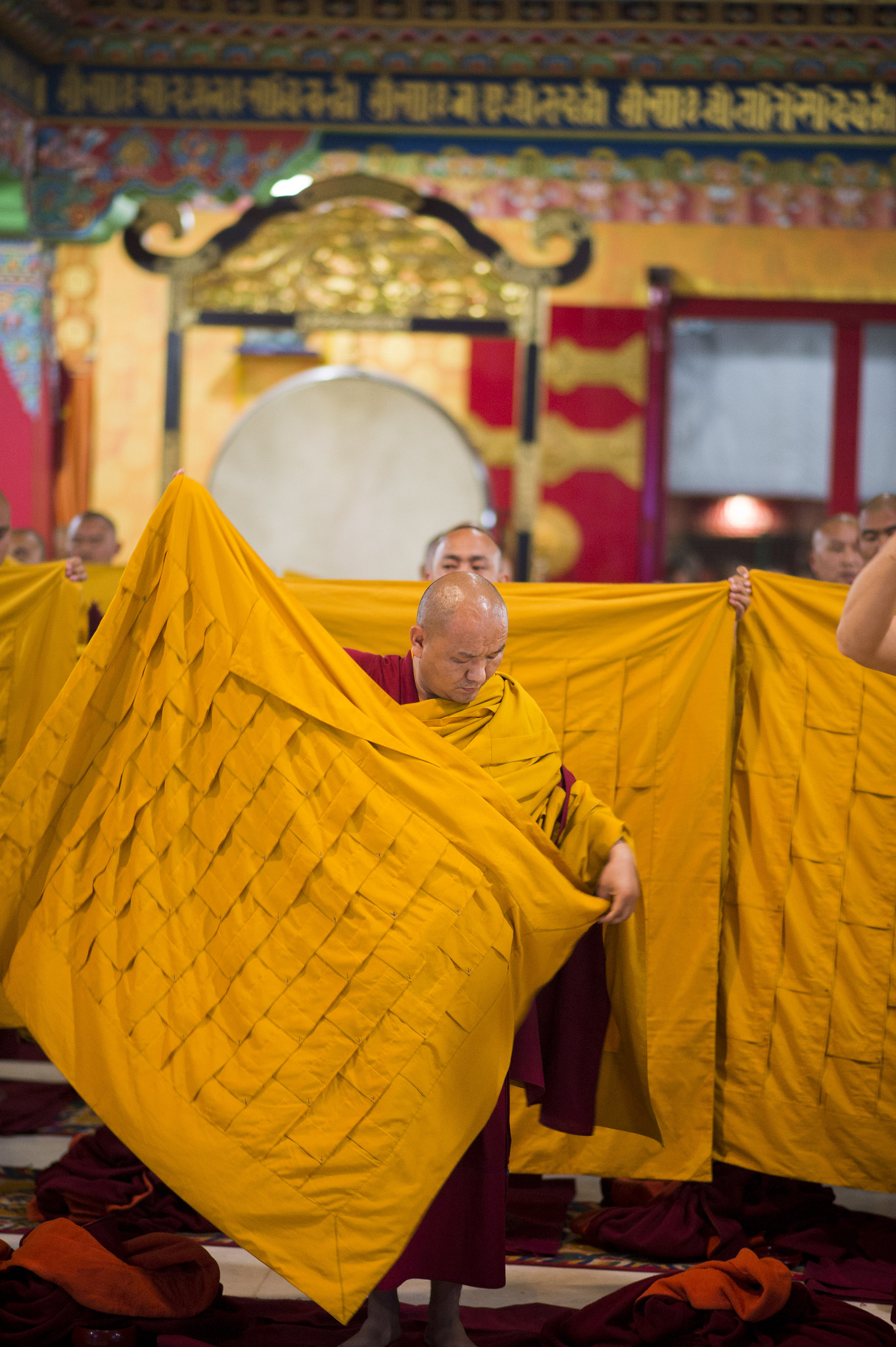
Gelongs also had to show their skill in putting the namjar (the additional yellow monastic robe) and the dagam (the warm winter cloak).
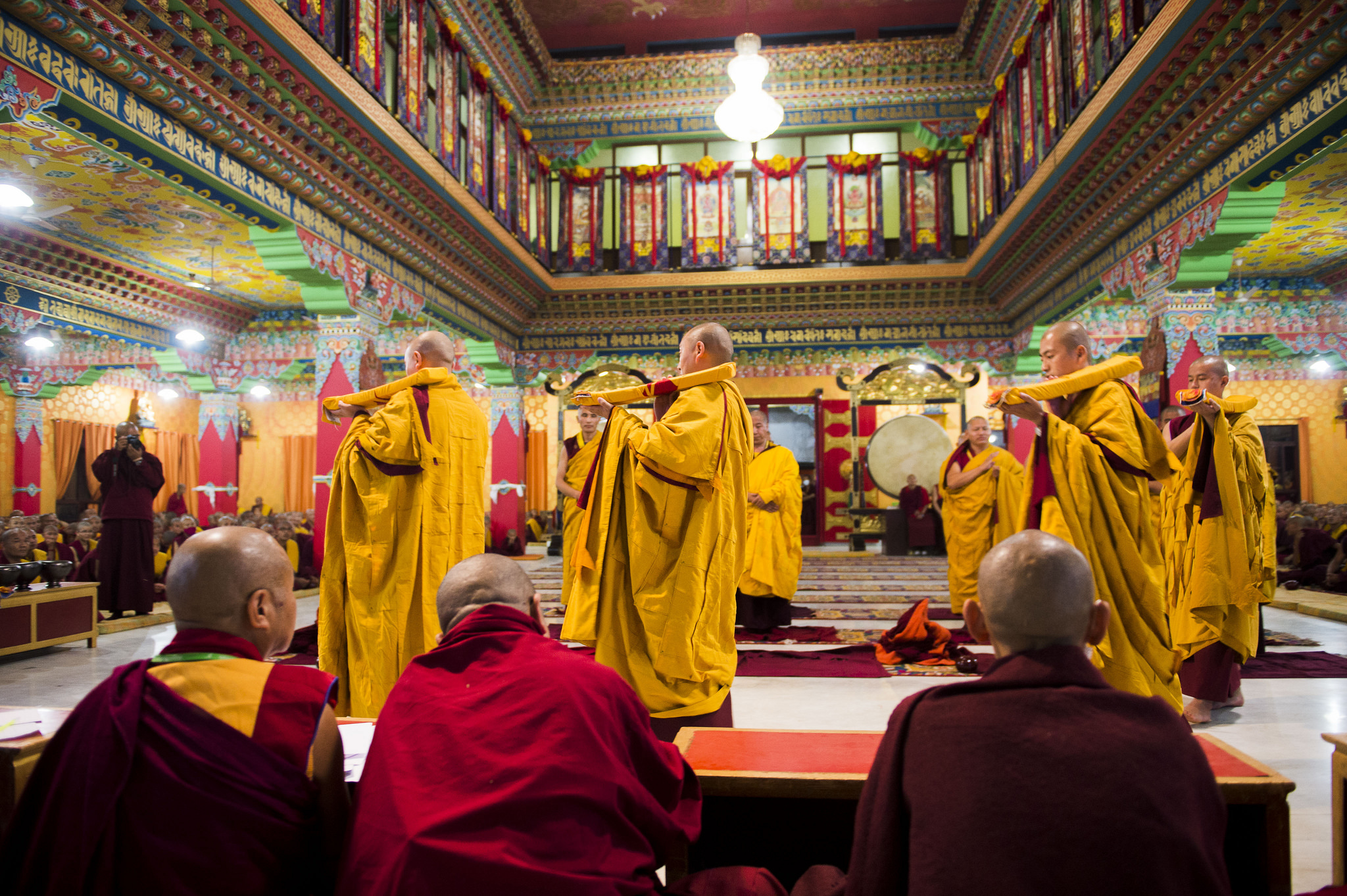
They had to walk in a dignified manner while carrying dharma texts over their left shoulder in the prescribed way.
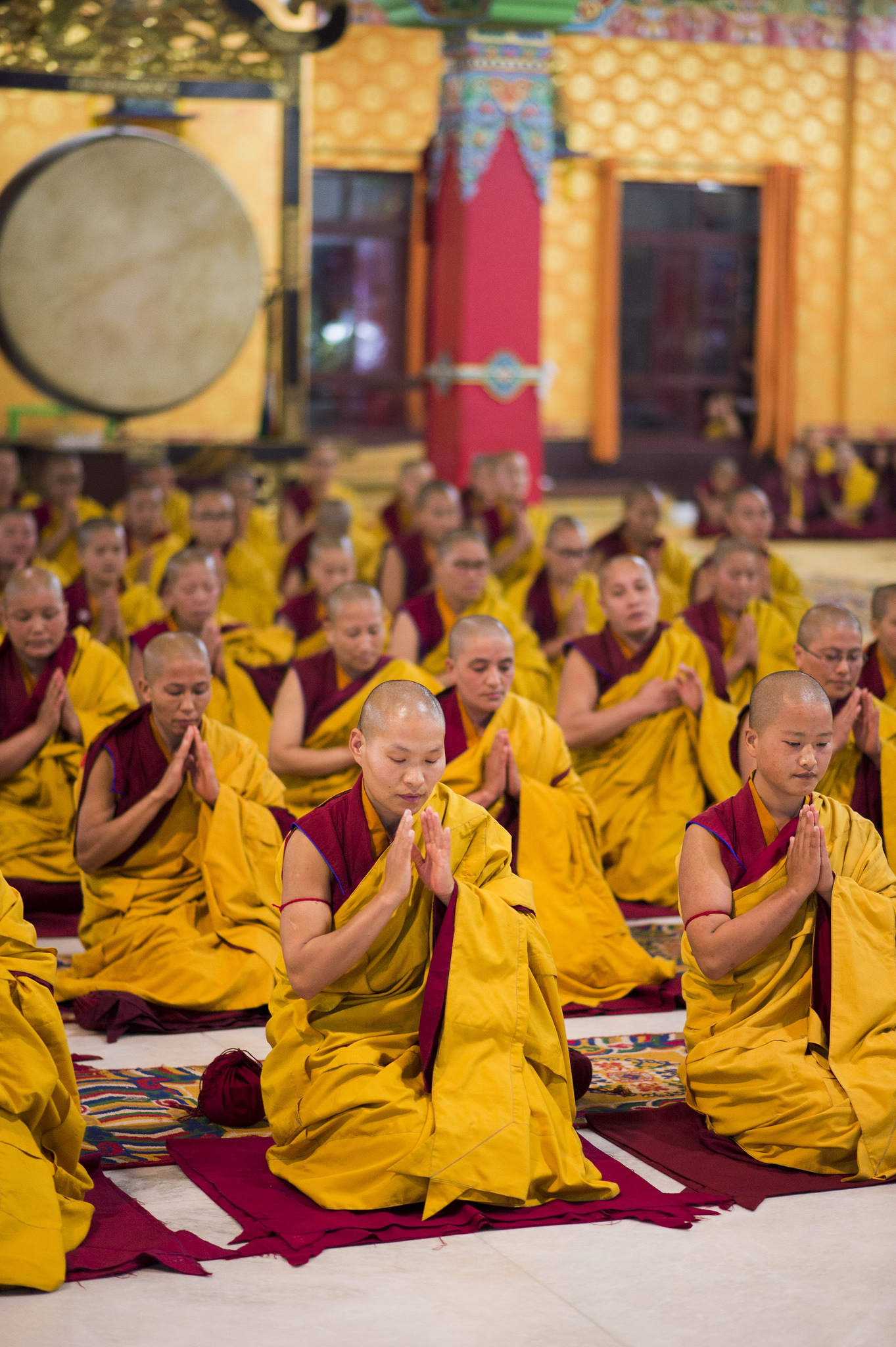
Getsulmas (novice nuns) as well had to display their prowess in monastic forms. Just like Getsuls, they had to show how to place the sitting cloth, the dingwa, on the floor properly, and how to receive tea and recite the tea offering prayers.
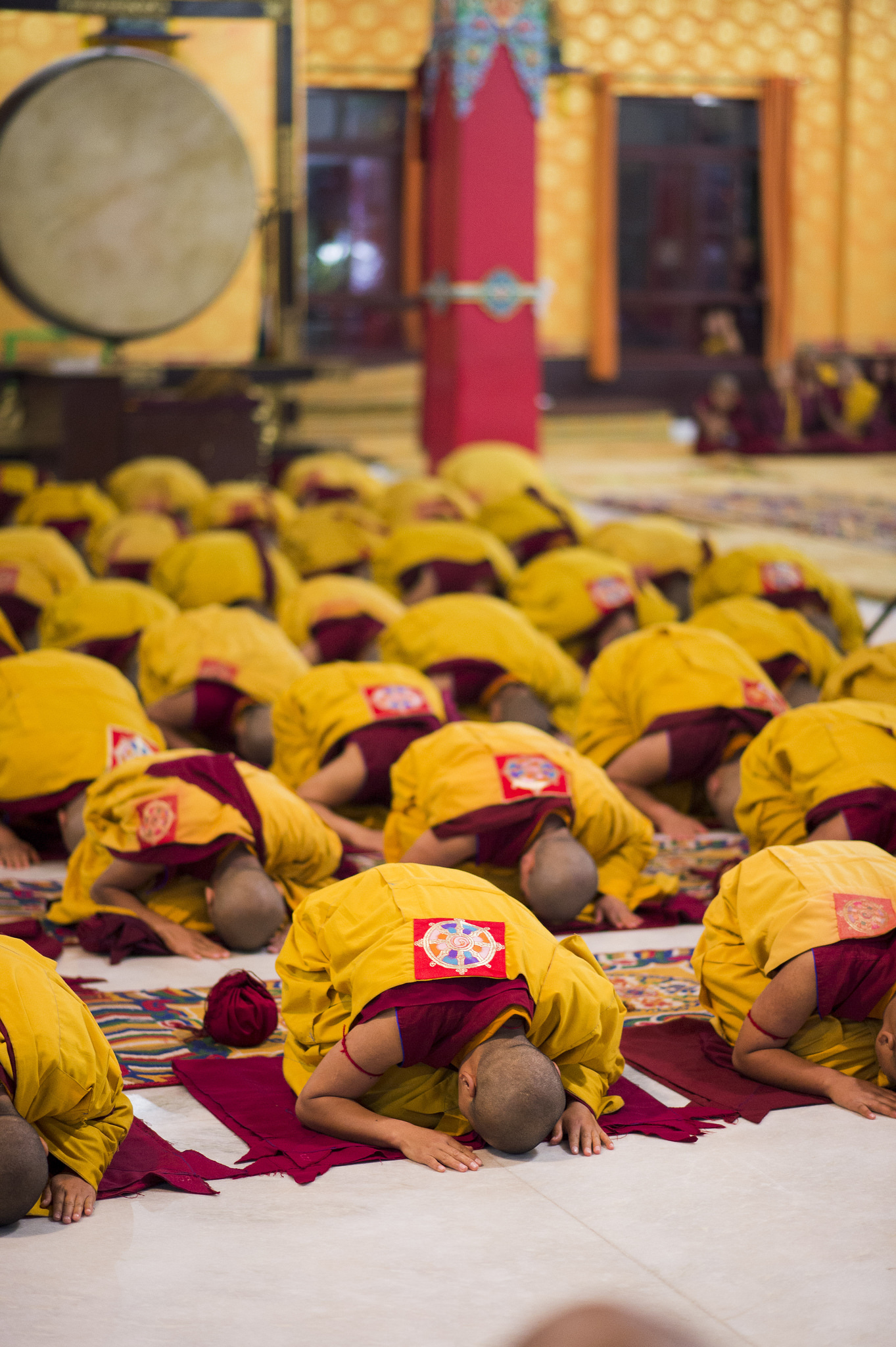
Making prostrations while wearing a prayer shawl was one of the tasks they all had to demonstrate.
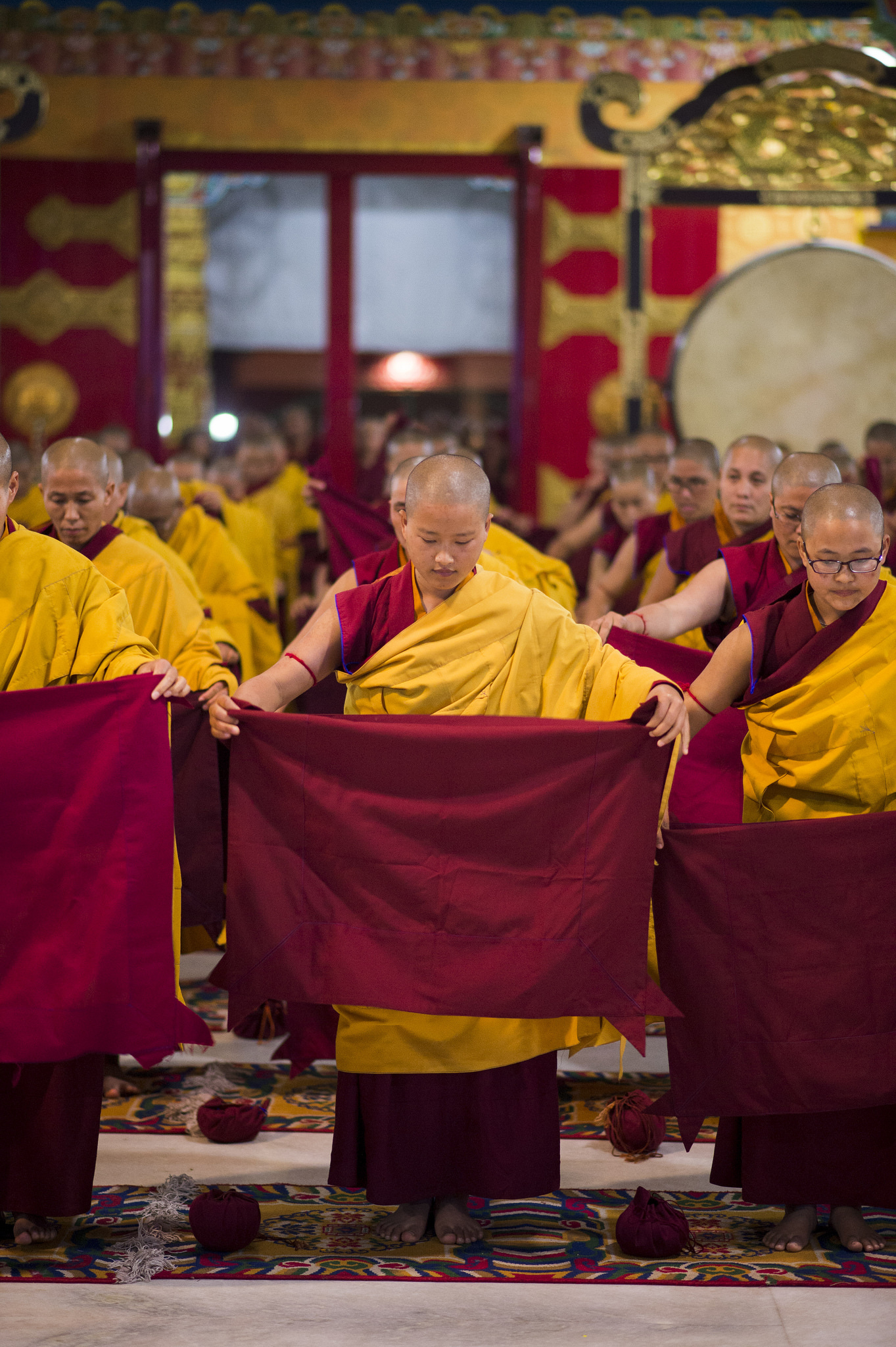
They also had to display that they knew how to wear their robes properly.
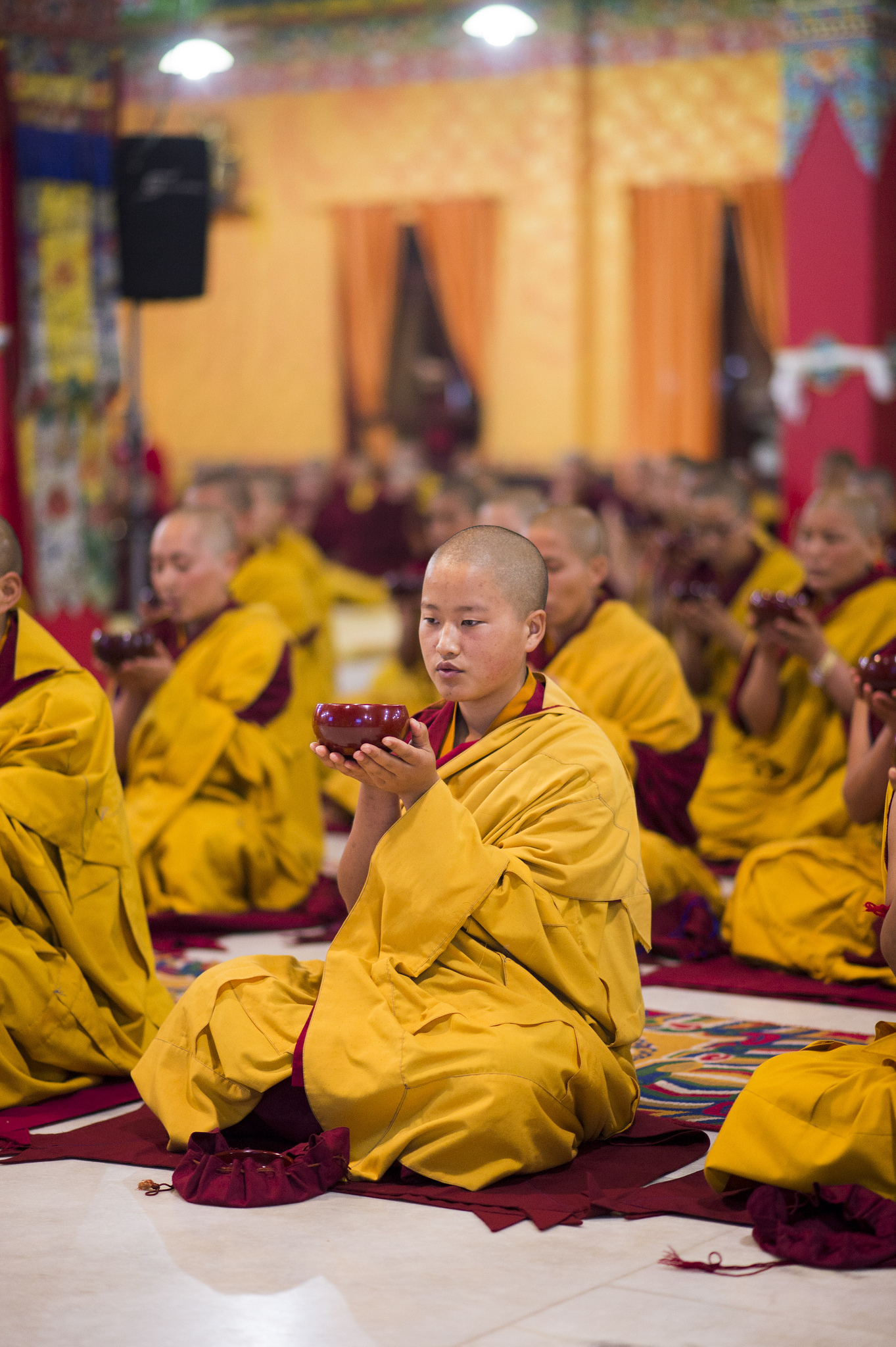
Gestulmas showing how to offer tea gracefully.













































